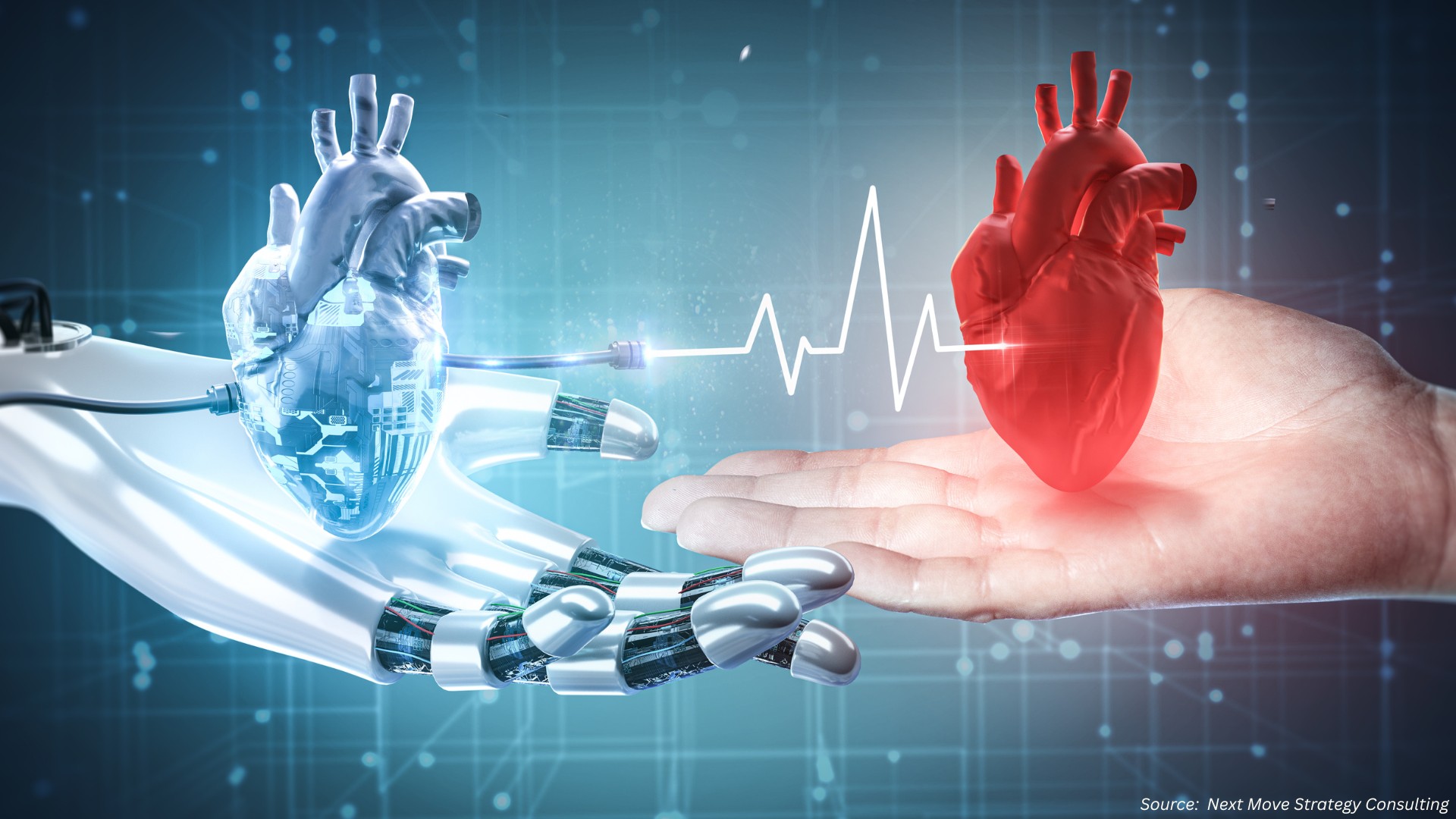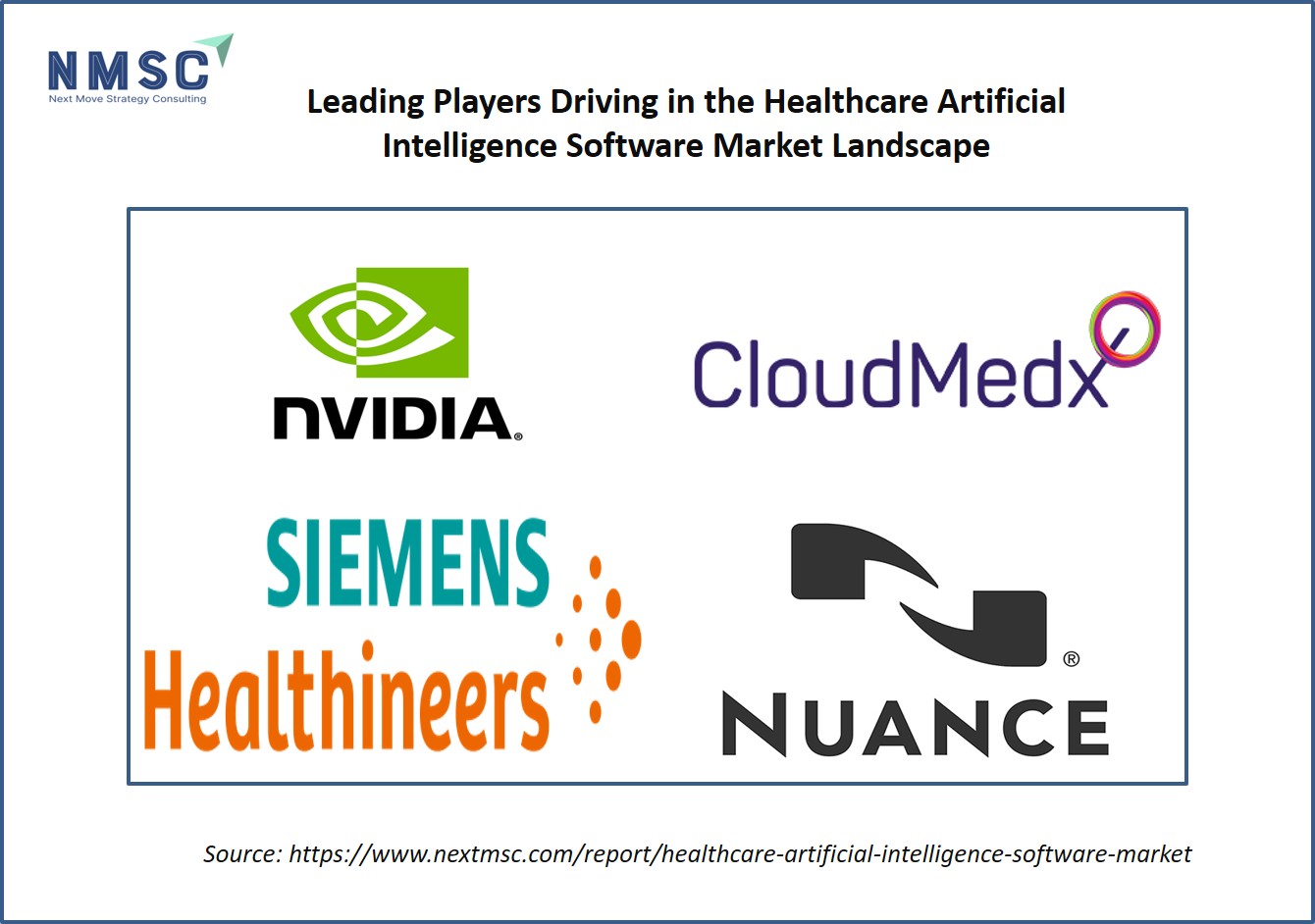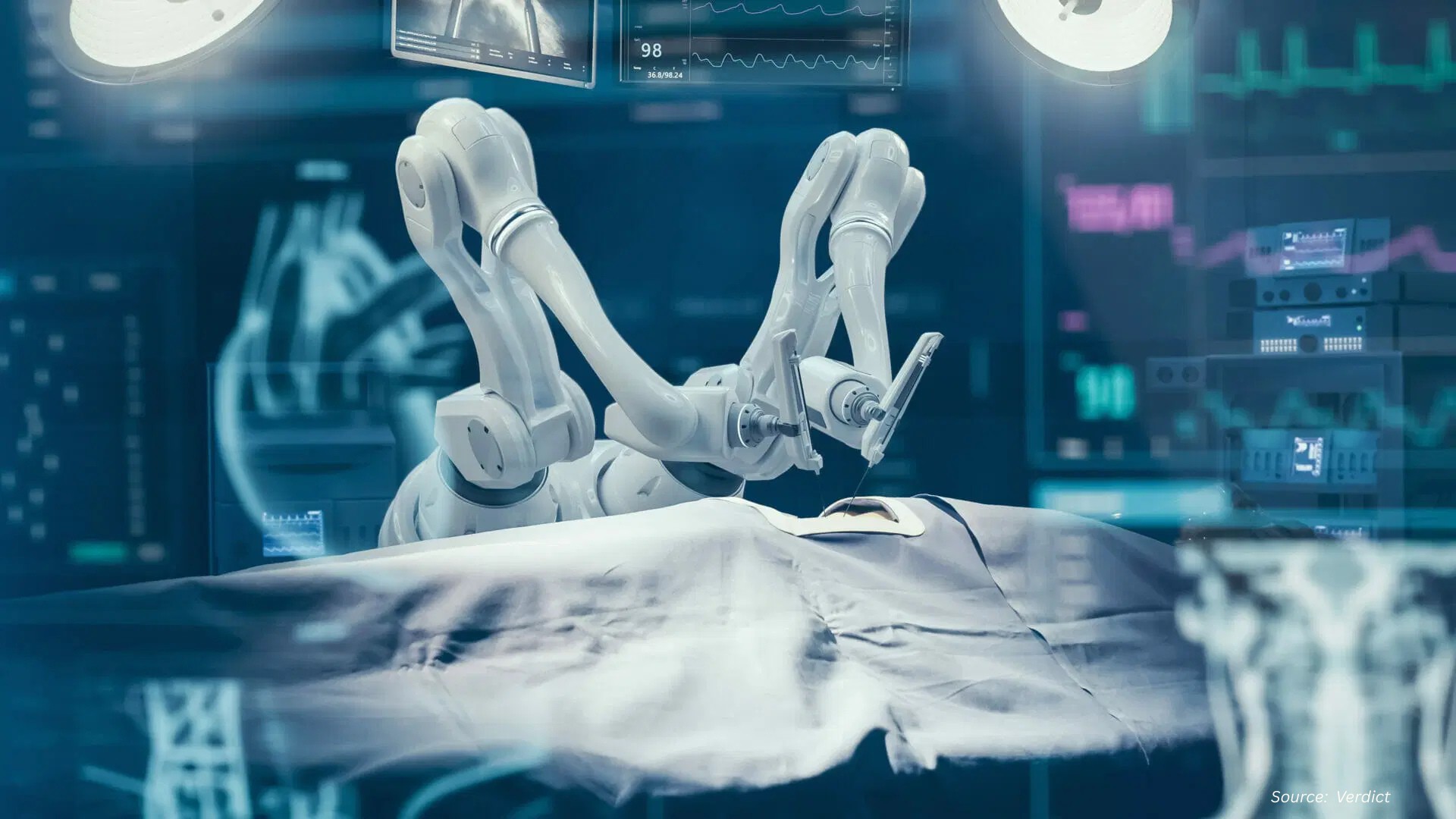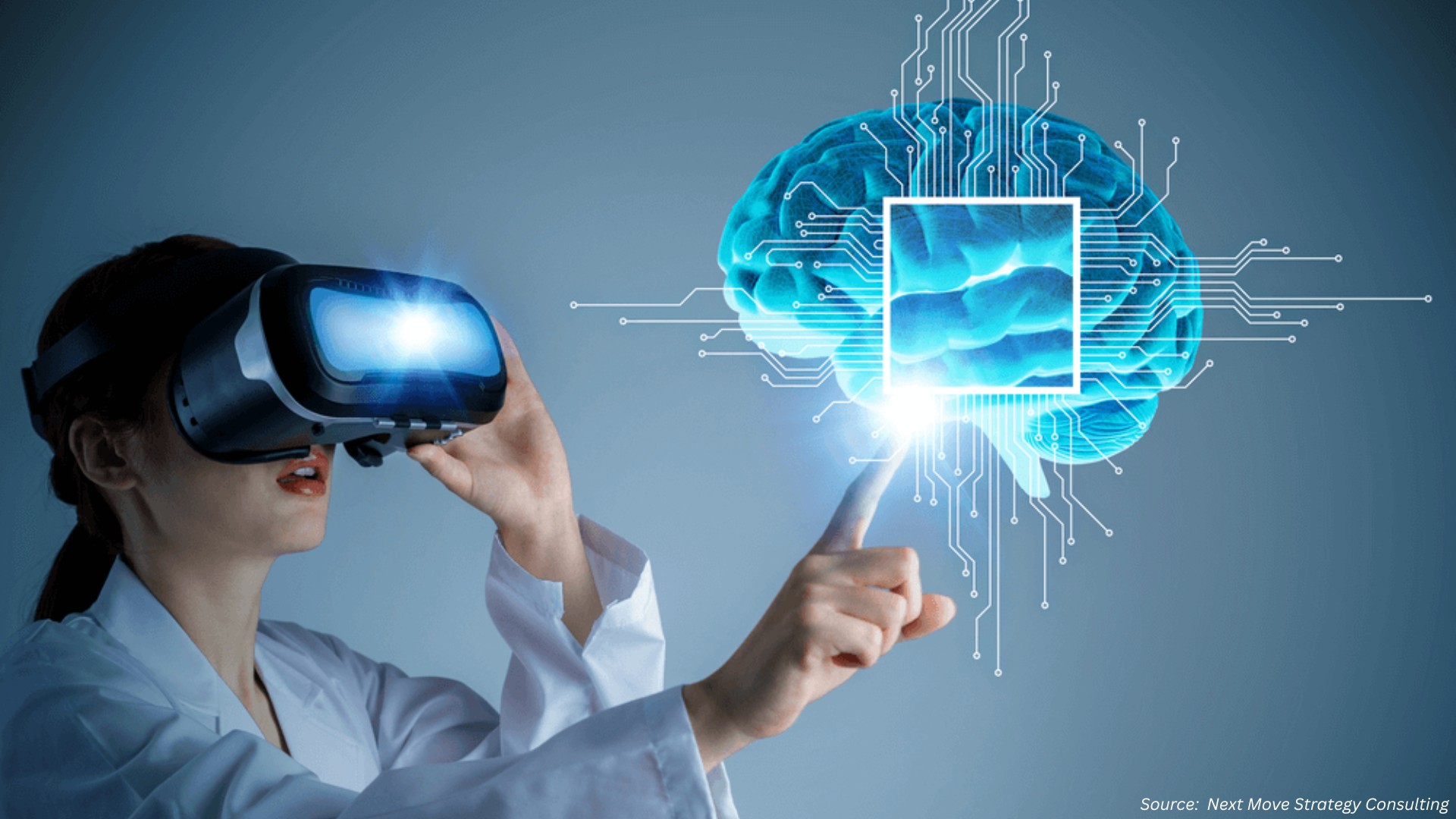Revolutionizing Healthcare with Artificial Intelligence Software
Published: 2025-09-23

The healthcare industry is undergoing a seismic shift, and artificial intelligence (AI) is at the heart of this transformation. From speeding up diagnostic imaging to accelerating drug discovery, AI software is empowering clinicians and researchers to deliver better outcomes with unprecedented efficiency.
AI-Powered MRI: Faster Scans, Sharper Images
Philips has taken a bold step forward with its SmartSpeed Precise software, which received FDA 510(k) clearance in July 2025. This dual AI solution integrates seamlessly into Philips’1.5T and 3.0T MRI systems, delivering faster scans and sharper images with a single-click workflow.
According to the report by Next Move Strategy Consulting, the global Healthcare Artificial Intelligence Software Market size is predicted to reach USD 216.73 billion by 2030 with a CAGR of 43.1% from 2024-2030.
By combining Compressed SENSE technology with AI-driven denoising and image-sharpening engines, SmartSpeed Precise tackles some of the biggest challenges in radiology today.
Why It Matters
Radiology departments face mounting pressure from rising scan demands, staff shortages, and clinician burnout. The Philips Future Health Index 2025 Global Report highlights that healthcare professionals see AI as a tool to reduce administrative burdens and improve diagnostic precision. SmartSpeed Precise addresses these issues by:
-
Reducing Scan Times: Up to 3x faster compared to Philips SENSE imaging, enabling a brain scan in under 10 seconds.
-
Enhancing Image Quality: Up to 80% sharper images compared to traditional methods, boosting diagnostic confidence in fields like neurology and oncology.
-
Simplifying Workflows: A one-click interface that adapts to user preferences, making it accessible for both experienced and novice technologists.
Real-World Impact
Dr. Julian Luetkens from University Hospital Bonn noted a 50% reduction in acquisition times for breast MRI, with improved image quality compared to previous protocols. This scalability across Philips’ installed MRI systems makes it a cost-effective upgrade for hospitals.
Philips’ SmartSpeed Precise is a game-changer, enabling faster, sharper MRI scans while easing operational burdens. It’s a prime example of how AI can transform diagnostic imaging.
Who Are the Key Players Driving the Healthcare AI Software Market?
Leading companies in the healthcare artificial intelligence software market include NVIDIA Corporation, Enlitic Inc., CloudMedx Health, Augmedix, GE Healthcare, Siemens Healthineers AG, Nuance Communications, Inc., Aidoc Medical, Paige AI, Inc., and Komodo Health, Inc., among others. These players are actively pursuing strategies such as partnerships and new product launches to strengthen their market presence and maintain a competitive edge.
AI in Genomics and Drug Discovery: NVIDIA’s Vision
NVIDIA is pushing the boundaries of healthcare AI through partnerships with leaders like IQVIA, Illumina, Mayo Clinic, and Arc Institute. These collaborations leverage NVIDIA’s AI and accelerated computing technologies to revolutionize genomics, drug discovery, and digital pathology. With healthcare poised to become a $10 trillion industry, AI is unlocking new possibilities for innovation.
Key Partnerships and Applications
NVIDIA’s AI solutions are being integrated into critical healthcare workflows:
|
Organization |
Integration with NVIDIA AI |
Impact / Outcome |
|
IQVIA |
Using NVIDIA’s AI Foundry service to build custom foundation models on 64 PB of healthcare data, powered by NVIDIA AI Enterprise software |
Streamlines clinical trials, accelerates drug development, ensures privacy and regulatory compliance |
|
Illumina |
Integrating NVIDIA’s accelerated computing and AI toolsets into DRAGEN software and Connected Analytics platform |
Enhances multiomics data analysis, enables breakthroughs in drug discovery and biomarker identification |
|
Mayo Clinic |
Leveraging NVIDIA’s DGX Blackwell systems and MONAI platform with models trained on 20M whole-slide images |
Advances digital pathology, supports personalized diagnostics and drug discovery |
|
Arc Institute |
Using NVIDIA’s BioNeMo platform to scale AI models for biology |
Advances drug discovery and synthetic biology |
Why It’s Transformative
These partnerships address critical healthcare challenges, such as slow drug discovery and manual pathology processes. For example, Illumina’s integration of NVIDIA RAPIDS and BioNeMo enables researchers to analyze complex genomic data faster, improving success rates in developing therapies. Mayo Clinic’s AI-powered pathology platform reduces diagnostic delays, enhancing patient outcomes.
NVIDIA’s collaborations are driving a new era of healthcare innovation, making drug discovery and diagnostics faster, more precise, and scalable.
Overcoming Healthcare Challenges with AI
AI software is addressing some of the most pressing issues in healthcare, from operational inefficiencies to diagnostic accuracy. Here’s how:
-
Reducing Backlogs: Faster MRI scans and streamlined clinical trials help hospital and research organizations manage growing patient and research demands.
-
Improving Accessibility: Scalable AI solutions, like Philips’ SmartSpeed Precise and Illumina’s DRAGEN software, can be deployed across existing systems, making advanced technology accessible without major hardware investments.
-
Enhancing Precision: AI-driven image sharpening and genomic analysis improve diagnostic and research outcomes, particularly in complex fields like oncology and neurology.
AI is not just a tool—it’s a lifeline for an industry stretched thin by demand and resource constraints.
Next Steps: How to Leverage Healthcare AI
For healthcare providers, researchers, and administrators looking to harness AI, here are actionable steps to get started:
-
Evaluate AI-Compatible Systems: Assess whether your MRI or genomics platforms support AI upgrades, such as Philips’ SmartSpeed Precise or NVIDIA’s AI toolsets.
-
Invest in Training: Equip staff with the skills to use AI-driven tools effectively, focusing on user-friendly solutions like one-click MRI workflows.
-
Partner with AI Leaders: Collaborate with companies like Philips, NVIDIA, or Illumina to integrate AI into existing workflows, ensuring compliance and scalability.
-
Monitor AI Updates: Stay informed about frequent AI advancements, as platforms like NVIDIA’s BioNeMo and Philips’ SmartSpeed Precise receive regular updates.
-
Prioritize Patient Outcomes: Use AI to reduce diagnostic delays and improve treatment precision, ultimately enhancing patient care.
By strategically adopting AI, healthcare organizations can improve efficiency, accuracy, and patient outcomes.
Conclusion
Artificial intelligence is redefining healthcare, from faster MRI scans to groundbreaking drug discovery. Philips’ SmartSpeed Precise and NVIDIA’s partnerships with IQVIA, Illumina, Mayo Clinic, and Arc Institute showcase the power of AI to transform diagnostics, research, and patient care. As these technologies continue to evolve, they promise a future where healthcare is faster, sharper, and more accessible than ever before. The time to embrace AI is now—let’s make healthcare smarter together.
About the Author
 Nitrishna Sonowal is an SEO Executive and Content Writer with 3+ years of experience in digital marketing. She combines analytical insights with creative storytelling to deliver impactful digital solutions. Beyond work, she enjoys dancing, baking, and exploring new places.
Nitrishna Sonowal is an SEO Executive and Content Writer with 3+ years of experience in digital marketing. She combines analytical insights with creative storytelling to deliver impactful digital solutions. Beyond work, she enjoys dancing, baking, and exploring new places.
About the Reviewer
 Sanyukta Deb is a skilled Content Writer and Digital Marketing Team Leader, specializing in online visibility strategies and data-driven campaigns. She excels at creating audience-focused content that boosts brand presence and engagement, while also pursuing creative projects and design interests.
Sanyukta Deb is a skilled Content Writer and Digital Marketing Team Leader, specializing in online visibility strategies and data-driven campaigns. She excels at creating audience-focused content that boosts brand presence and engagement, while also pursuing creative projects and design interests.

















Add Comment